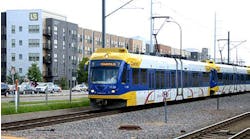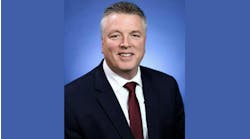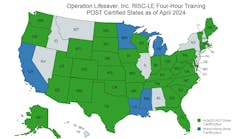A "vociferous" meeting at Kings Bromley Village Hall showcased more opposition for high-speed rail.
More than 125 villagers joined the meeting called in opposition to the planned HS2 project, which will terminate within one-and-a-half miles of the tranquil settlement.
The meeting was the brainchild of residents Guy and Diane Allsop, Joy and Barry Fielding and Julia Allsopp and her partner Wayne.
"Many villagers and residents share the view that there is as yet no justifiable economic case for this rail project," said Guy Allsopp.
"The campaign is all-about stopping what is the white elephant of all engineering projects and ranks of the scale of the Millennium Dome.
"What an investment disaster for taxpayers that turned out to be - and HS2 is headed in the same direction.
"The only positive note is that so far, there isn't a firework display planned."
The current "preferred route" of HS2 joins back to the West Coast Main Line at Hanch.
But the Government has announced it intends to join the network up to the north in a "Y-shaped" route, the details of which remain under wraps in Whitehall.
Speculation is rife as to where that route could run.
Cllr Ian Pritchard, the outgoing chairman of the Parish Council, chaired the Kings Bromley meeting and opened it with a series of remarks and comments that gave the background to HS2 scheme and its projected impact.
He then introduced Jerry Marshall, chairman of Action Groups Against High Speed Two, AGAHST, who gave a scathing 20-minute address.
"Currently, there is no demand for the extra capacity that HS2 will offer," said Mr Marshall.
"Existing capacity on the East and West Coast Main Lines can be doubled before any HS2 lines are required.
"In terms of the required additional capacity, this can be achieved by extending trains to 11 or 12 cars, reducing first class accommodation and improving load utilisation from the current low level of only 52 per cent.
"An airline would go broke if it could only achieve that level."
He was also scathing about the predicted level of jobs HS2 would create, claiming that, of the 40,000 posts forecast, 1,500 would be operational jobs with HS2 Ltd; 9,000 are temporary construction employment, and 30,000 are in "re-distributed" retail jobs in shopping malls near rail stations that would be sucked from nearby high streets.
Additionally, 73 per cent of those 30,000 jobs are expected to be in London - further exacerbating the north-south divide.
Mr Marshall also claimed that the predicted HS2 train time for London to Newcastle in 2032 of two hours and 37 minutes would be achieved by the East Coast Main Line by the end of this year.
And he said there was still room for further improvement in reducing travel times by installing "in-cab signalling on existing trains" using the present tracks for trains to run at up to 140mph.
At those speeds, locomotives would match the current Frankfurt-to-Cologne service, which is frequently hailed as a European benchmark.
Resident Guy Allsopp encouraged all those attending to sign the petition at http://www.stophs2.org - a 100,000 target is required by July.
"Whilst those living near the intended route are growing in their vociferous opposition to HS2, it is essential to the success of the StopHS2 campaign that more of the population registers their concerns and disapproval," he added.
Mr Allsopp recommended campaigners adopt the new Six Friends campaign to get family, friends, contacts and partners who live away from the route of the lines to sign the petitions against the plan, buy car stickers and write to their MPs.
Copyright 2008 LexisNexis, a division of Reed Elsevier Inc. All rights reserved.
Terms and Conditions | Privacy Policy


